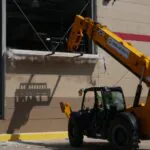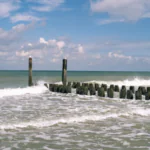A camping adventure necessitates careful preparation and strategic packing. Ensuring you have the essential items can significantly impact the quality and safety of your outdoor experience. From shelter to sustenance, equipping yourself with the right gear can mean distinguishing between a challenging and memorable trip. Let’s delve into the fundamental items that should find a place in every camper’s backpack to optimize comfort, safety, and enjoyment amidst the great outdoors.
Shelter and Sleeping Essential
Ensure you have the appropriate shelter and sleeping essentials for a comfortable outdoor experience. A reliable tent, capable of withstanding the elements, is crucial. Purchase a high-quality sleeping bag appropriate for the predicted weather. Add a sturdy sleeping pad to it to serve as a cushion and insulator. Based on the climate and terrain of your camping site, choose your shelter and sleeping equipment. Properly setting up your shelter and arranging your sleeping area can significantly impact your camping comfort. Pay attention to tent placement, proper assembly, and efficient utilization of space for a restful night’s sleep.
Campfire and Cooking Gear
Equipping yourself with essential campfire and cooking gear is paramount for a successful camping experience. A portable stove, fuel source, and appropriate utensils are foundational elements. These tools facilitate efficient meal preparation and water boiling. Additionally, secure matches or a reliable fire starter for igniting your campfire. Adequate fire safety measures and knowledge are vital for responsible campfire usage. Ensure proper extinguishing and disposal of fire remnants, adhering to the campsite regulations. Understanding how to safely control and cook over a campfire is fundamental for preparing enjoyable meals during your outdoor stay.
Appropriate Clothing and Footwear
Selecting suitable clothing and footwear for your camping excursion is crucial. Include weather-adapted attire, considering temperature variations and potential precipitation. Layering is key to adjusting to changing weather conditions throughout the day. Equip yourself with adequate rain gear to stay dry during unexpected rainfall. On various terrains, sturdy, comfortable hiking boots are a must for foot support and safety. Packing extra socks ensures maintaining foot hygiene and comfort during prolonged outdoor activities. Carefully plan and pack clothing and footwear that align with your camping adventure’s anticipated climate and activities.
First Aid Kit
Always prioritize safety by bringing a well-prepared first aid kit on your camping trip. The kit should encompass a variety of bandages and adhesive tapes to tend to minor injuries. Cleaning wounds and avoiding infections need the use of antiseptic wipes. Pain relievers can alleviate discomfort and pain from minor injuries or headaches. It’s imperative to include personal medications specific to individuals in your camping group. Tweezers, scissors, and a thermometer are versatile tools for a range of medical needs. A first aid manual or instruction booklet can guide handling diverse medical situations that may arise during your outdoor adventure.
Water and Water Filtration
Ensuring a sufficient and safe water supply is imperative for a successful camping experience. According to the length and difficulty of your trip, bring plenty of water. However, in prolonged outdoor stays, a water filtration system is indispensable. Water filtration systems effectively eliminate harmful microorganisms, making water from natural sources potable. Boiling water is another reliable method to purify it, especially in the absence of a filtration system. Plan and strategize your water needs, balancing consumption and availability, to sustain your hydration requirements throughout your camping venture.
Food and Food Storage
Paying attention to food and food storage is essential for a successful camping trip. Carry non-perishable food products that are filling and simple to cook. Think about solutions that are portable and light, like dried fruit, nuts, energy bars, and dehydrated meals. Proper food storage is crucial to deter wildlife and maintain food safety. Use airtight containers, bear canisters, or hang your food in designated areas to minimize attracting animals. Plan your meals in advance and portion them to avoid excess food and reduce waste during your camping adventure.
Lighting Devices
Purchasing the right lighting equipment is essential for camping, which is both safe and practical. Headlamps and flashlights are fundamental tools, offering portability and hands-free illumination. LED lighting uses less energy and offers constant brightness. Opt for the best LED light colors for different situations; white light is ideal for general visibility, red preserves night vision, and blue is suitable for blood tracking or reading maps. Consider the lumens and beam distance to meet your specific lighting needs. Always carry extra batteries to ensure uninterrupted light during your outdoor stay. Select lighting supplies that are appropriate for the activities and environment of your camping vacation.
Navigation Tools
Equipping yourself with reliable navigation tools is vital for a successful camping expedition. A camping area map, preferably topographic, is indispensable for understanding the terrain. A compass enables you to maintain the right direction and aids in map reading. Consider a GPS device for precise location tracking and route planning. Before beginning your adventure, familiarize yourself with how to use these tools efficiently. Additionally, having a basic understanding of landmarks and natural features can enhance your navigation skills and help ensure a safe and enjoyable camping experience.
Multi-Tool and Repair Kit
Carrying a multi-tool and a repair kit is essential for addressing unexpected situations during camping. A multi-tool combines various functions like cutting, gripping, and screwing, providing versatility in solving minor equipment issues. Include essential repair items like duct tape, extra tent stakes, a sewing kit, and cordage in your repair kit. These items can come in handy for fixing torn gear, securing your tent, or mending clothing. Make sure to inspect and replenish your repair kit before each camping trip to ensure you have the necessary tools and materials for any potential repairs that may arise.
Conclusion
Equipping yourself with the right gear ensures you are ready to face various outdoor challenges. From shelter to navigation, each item contributes to a smoother camping experience. Take the time to plan and pack wisely, and your camping escapades will be filled with comfort, safety, and a greater connection to nature.






Comments closed.